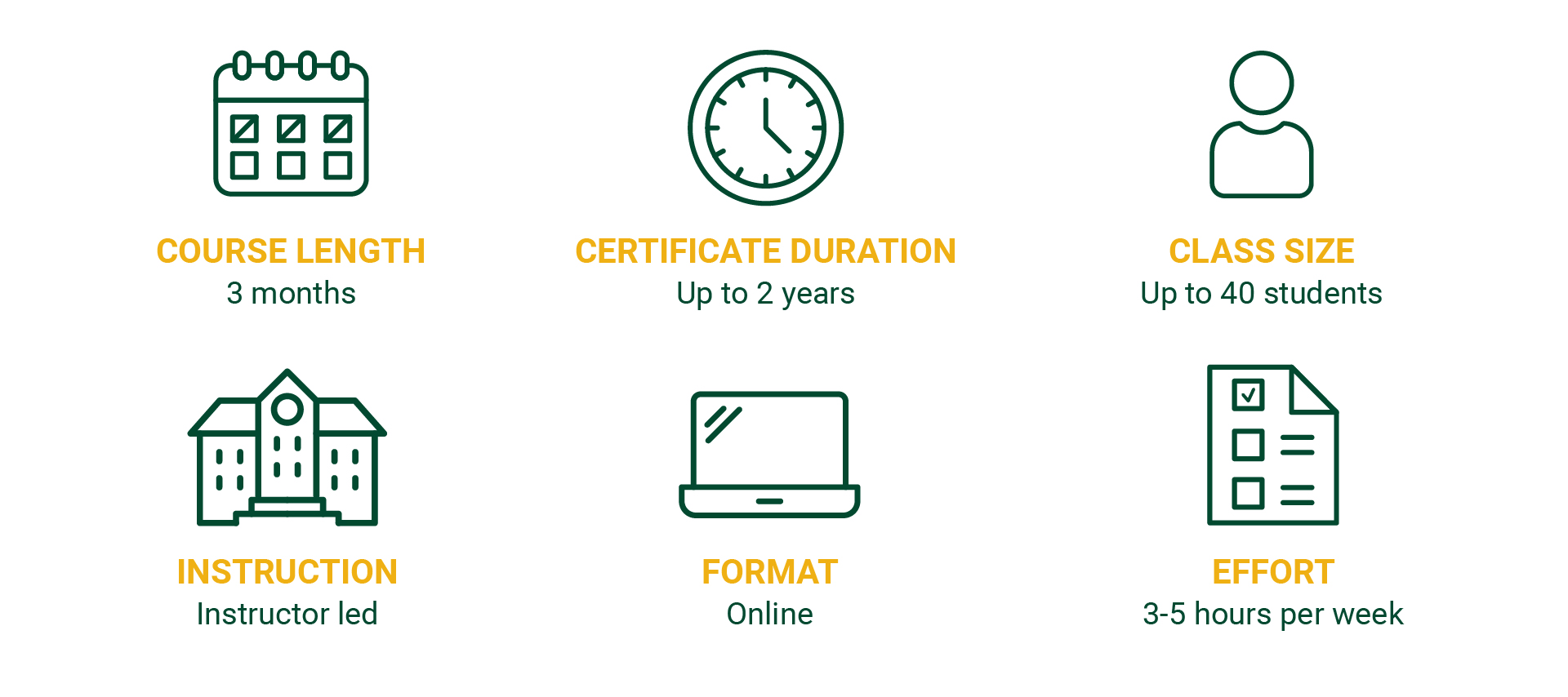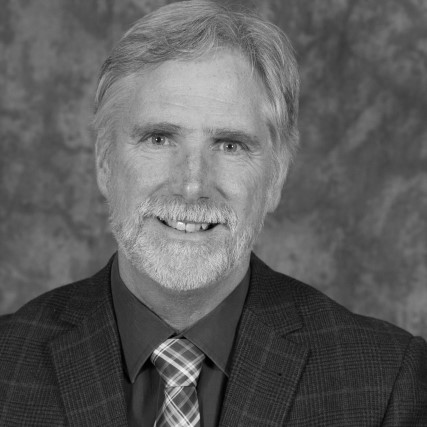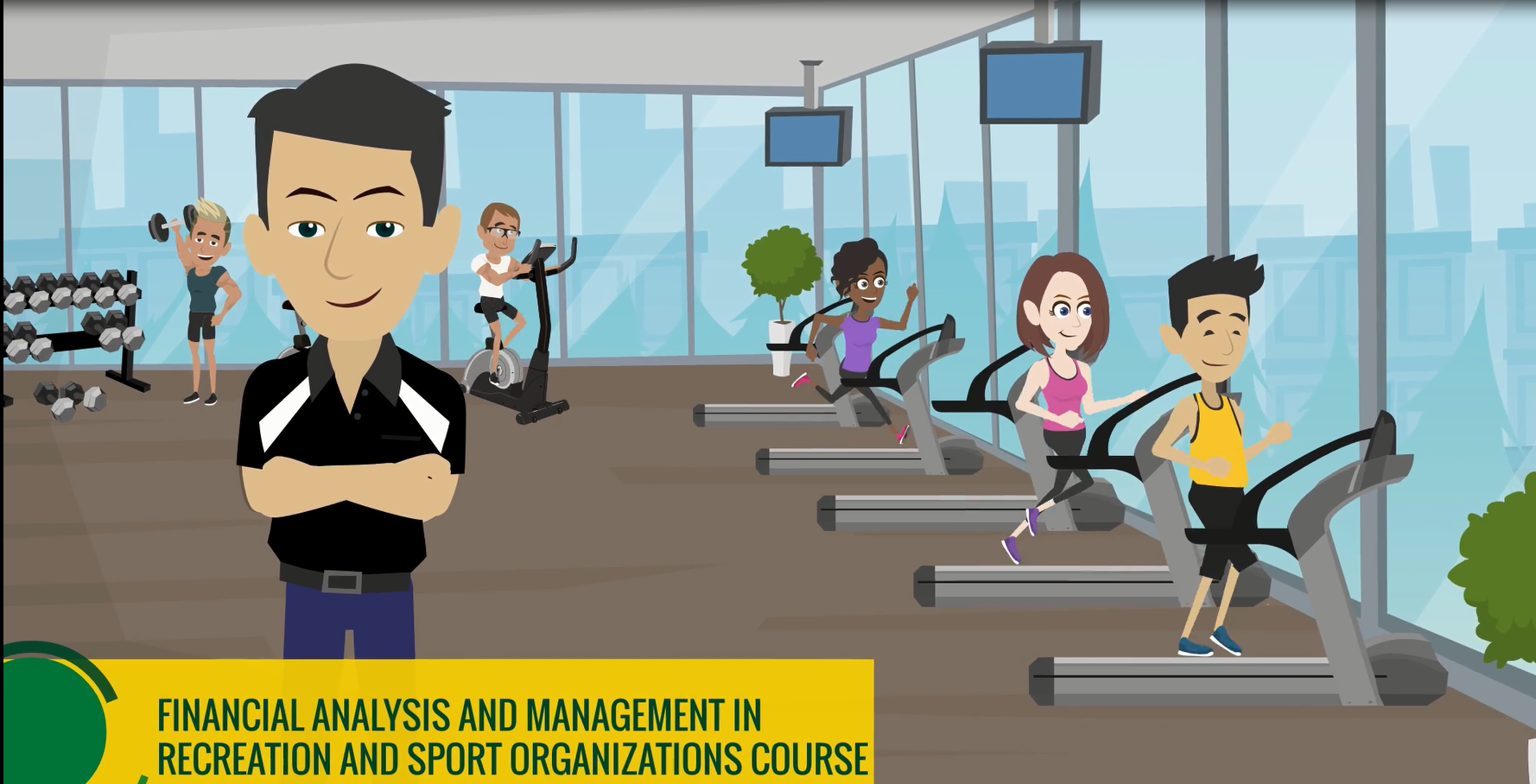Sport and Recreation Management Graduate Certificate
The Sport and Recreation Management Graduate Certificate is aimed at enhancing professional management and leadership skills in the fields of recreation, sport and health.
Students will gain sought-after skills and knowledge in finance, marketing, leadership in the public sector, facility management, event management, public relations and the latest trends in sport and recreation.
Students will also connect and learn with others in their field.
All courses are instructor-led and delivered online.
This program will be of interest to:
- Recreation and Leisure Professionals
- Tourism Professionals
- Provincial and National Sport Organizations
- Community Non-Profit Organizations
- Community Development Professionals
- Health Professionals
- Physical Educators
- Event Management
- Recreation Facilities Operators
- Fitness and Well-Being Professionals
- Allied Health Professionals
- Sport Professionals (including athletes and coaches)
- Community Service Professionals
Applications are now open! Students can begin in Fall, Winter, or Spring. Application deadlines are:
- Fall: August 1
- Winter: December 1
- Spring: April 1
* Please confirm that this Certificate is offering a Spring course. If not, your application will automatically be deferred to the Fall term.
The Sport and Recreation Management Graduate Certificate can also be laddered into a course-based Master of Arts or Master of Arts Recreation and Leisure degree in the Faculty of Kinesiology, Sport, and Recreation.
 Joe Dixon
Joe Dixon
Manager of Recreation Services, Hope Recreation Centre
SRM Certificate Graduate
Dixon completed both the Indigenous Sport and Recreation Graduate Certificate and the Sport and Recreation Management Graduate Certificate over two years and landed his dream job in Hope, B.C.
“In a 24-month period, I went from someone starting my program to landing a role in recreation management. The two certificates allowed me to gain a completely different perspective on programming, building Indigenous relationships within the community and being a manager within a recreation setting.”
Please see the FAQ section below for information courses, tuition and program requirements.
How it Works

Courses are instructor-led and delivered online. They combine the best aspects of real time (synchronous) learning guided by your instructor and independent self-directed (asynchronous) study which can be accomplished according to your schedule.
Please note: there may be scheduled times in which students are expected to attend live online sessions.
Courses
Students are required to complete a minimum of four courses, each worth 3 credits, for a total of 12 credits. There are six courses to choose from. Courses are offered online only and students will have up to four years to complete the certificate.
The nature and number of courses offered in a calendar year will vary. All six courses will not be offered each year.
- Organizational Analysis of Sport and Recreation
- Sport and Recreation Organizations and the Public Sector
- Financial Analysis and Management in Recreation and Sport Organizations
- Marketing and Sponsorship in Sport and Recreation
- Facilities and Event Management
- Contemporary Issues in Sport and Recreation
Courses and details listed below:
This course explores the concept and application of leadership in sport and recreational organizations from both theoretical and practical perspectives. Students will gain theoretical perspectives of leadership through a series of asynchronous course modules that include reading, watching and doing. Students will apply these theoretical perspectives during synchronous online seminars where they will address ‘wicked problems in leadership’ that focus on both what to do, and how to do it. By the end of this course, students will have developed a well-rounded understanding of leadership concepts for use in their own leadership situations.
By the end of this course, students will be able to:
- Distinguish between leadership and management in sport and recreation organizations
- Understand historical and contemporary approaches to leadership
- Understand and define the concept of 'wicked problems'
- Apply theoretical aspects of leadership in answering 'wicked problems' in sport and recreation
- Articulate their personal leadership style when confronted by 'wicked problems' on sport and recreation
- Describe the advantages of, and propose approaches of diversity in leadership in sport and recreation
Course Instructor: Dr. Kerry Mummery
 Dr. Kerry Mummery is in his 11 th year as Dean of the Faculty of Kinesiology, Sport, and Recreation. He has held numerous leadership positions in both sport and academics. He coached professionally for over 20 years in the sport of competitive swimming, including head coaching positions of amateur swimming clubs in Manitoba, Saskatchewan, Ontario and Alberta. He served as the Head Coach to both Canada and Western Canada Games teams and gained appointments to various national swimming team coaching staffs in the 1980's. He has experience on the boards of the Canadian Swimming, Coaching Association of Canada, and ParticipAction, and was the President of Sports Medicine Queensland, and President-elect of Sports Medicine Australia prior to his return to Canada to accept his current position at the University of Alberta.
Dr. Kerry Mummery is in his 11 th year as Dean of the Faculty of Kinesiology, Sport, and Recreation. He has held numerous leadership positions in both sport and academics. He coached professionally for over 20 years in the sport of competitive swimming, including head coaching positions of amateur swimming clubs in Manitoba, Saskatchewan, Ontario and Alberta. He served as the Head Coach to both Canada and Western Canada Games teams and gained appointments to various national swimming team coaching staffs in the 1980's. He has experience on the boards of the Canadian Swimming, Coaching Association of Canada, and ParticipAction, and was the President of Sports Medicine Queensland, and President-elect of Sports Medicine Australia prior to his return to Canada to accept his current position at the University of Alberta.
The Financial Analysis and Management in Recreation and Sport Organizations course will examine industry trends and topics such as public partnership, economic rationales for investment, sources of funding, revenues and business development. Postcard
Students will acquire financial skills in the areas of pricing, budgeting and financing. Sample topics include; pricing, budgeting, capital budgeting, debt and equity financing and facility financing.
- Understand the broader financial and economic environment in which the sport and recreation industry operates
- Utilize basic accounting concepts related to various financial statements
- Identify, compute, and explain some of the common ratios used to measure an organization's liquidity, leverage, and profitability
- Define and apply various aspects of the budgeting process
- Identify, compute, and explain some of the current financial issues sport and recreation organizations are negotiating
Course Instructor: Dr. Brian Soebbing
 Dr. Soebbing's main research interest focuses on the strategic behavior of sport and recreation organizations and their constituents. Within this research area, Dr. Soebbing examines issues related to sport facilities and events, decisions made by organizational leaders and its members, policies adopted/modified by sports and recreation organizations, and behaviors by consumers of sport and recreation.
Dr. Soebbing's main research interest focuses on the strategic behavior of sport and recreation organizations and their constituents. Within this research area, Dr. Soebbing examines issues related to sport facilities and events, decisions made by organizational leaders and its members, policies adopted/modified by sports and recreation organizations, and behaviors by consumers of sport and recreation.
The course will examine current topics within the sport and recreation environment from a variety of perspectives including economics, finance, sociology, management, and ethics.
This course will explore the key concepts and issues associated with facility and event management from the unique perspectives of the sport and event management industry. Students will become familiar with the key components of operation and management of athletic and recreation facilities and events. Major topics that will be covered are feasibility analysis; facility planning, design and construction; event planning; marketing; budgeting; human resource management; performance analysis and management; legacy and impacts; and future trends.
Students who successfully complete the course will be able to:
- Gain a broader understanding of the planning, development, management and operation of sport and recreation facilities and events.
- Enhance their understanding of operational management tools that are used by managers of sport/recreation facilities and events.
- Plan, organize resources, promote, direct personnel and evaluate an event to promote advocacy for sports and recreation.
- Acquire an understanding of the strategies required to plan and assess sports and recreation facilities and events.
- Use analytical tools to understand and critically assess the economic, social and community impact of a facility development and event hosting.
- Provide a detailed assessment of problems/issues relating to facility or event management for a sport and recreation organization.
Course Instructor: Cheryl Hawardt
 As the Director of Campus & Community Recreation at the University of Alberta, Cheryl's portfolio oversees over 750,000 square feet of space spanning 37 sport and recreation facilities across two campuses. The role of Campus & Community Recreation is to support our communities to explore and enhance their physical, mental, emotional and spiritual well-being through physical and social activity. Cheryl's 35-year career in Recreation and Sport Management, she has planned, developed and managed small and large facilities including both indoor and outdoor spaces. In addition to managing events that attracting a province-wide audience, Cheryl's portfolio includes; fitness, instructional and intramural programming, club sports, facility operations and event management. Cheryl is passionate about creating outstanding experiences for our clientele through safe, efficient facility operation, unique program offerings and excellent customer service.
As the Director of Campus & Community Recreation at the University of Alberta, Cheryl's portfolio oversees over 750,000 square feet of space spanning 37 sport and recreation facilities across two campuses. The role of Campus & Community Recreation is to support our communities to explore and enhance their physical, mental, emotional and spiritual well-being through physical and social activity. Cheryl's 35-year career in Recreation and Sport Management, she has planned, developed and managed small and large facilities including both indoor and outdoor spaces. In addition to managing events that attracting a province-wide audience, Cheryl's portfolio includes; fitness, instructional and intramural programming, club sports, facility operations and event management. Cheryl is passionate about creating outstanding experiences for our clientele through safe, efficient facility operation, unique program offerings and excellent customer service.
A study of basic marketing concepts with applications to sport and recreation organizations. Topics may include promotions and public relations, consumer behavior, marketing communications, and branding.
The course is framed around a textbook (free eBook through U of A library) taking a holistic approach to understanding and solving organizational problems. This holistic approach revolves around 4 frames. In looking at and analyzing these 4 frames, we explore both the organization as a whole but also individual groups and teams. The book, which is easy to read, provides many examples throughout all areas of business which we supplement in class with works from sport and recreation to see how these lessons and topics apply into the current sport and recreation industry. From our discussion, students will gain additional tools on how to approach many problems within organizations and gain information on how to address these issues. Thus, students who are interested in and already are pursuing a career in sport and recreation will find a lot of practical utility from the course. Students who may be pursuing a career outside of sport and recreation will also find practical utility based upon the general nature of the textbook and the ability to apply the theories and concepts to many industries.
Students who successfully complete the course will be able to:
- Gain an understanding on main theories and concepts related to better understand behaviors of (and within) organizations
- Understand and identify some general problems for sport and recreation organizations and how those problems can be addressed
- Apply concepts, methods, and tools to one's own organizational problems
- Develop an understanding of integration of research into organizational behavior and everyday interactions of stakeholders
- Integrate concepts from other classes in the certificate (for students who have already taken previous certificate courses)
Course Instructor: Dr. Brian Soebbing
 Dr. Soebbing's main research interest focuses on the strategic behavior of sport and recreation organizations and their constituents. Within this research area, Dr. Soebbing examines issues related to sport facilities and events, decisions made by organizational leaders and its members, policies adopted/modified by sports and recreation organizations, and behaviors by consumers of sport and recreation.
Dr. Soebbing's main research interest focuses on the strategic behavior of sport and recreation organizations and their constituents. Within this research area, Dr. Soebbing examines issues related to sport facilities and events, decisions made by organizational leaders and its members, policies adopted/modified by sports and recreation organizations, and behaviors by consumers of sport and recreation.
Emphasis is on the role of the federal, provincial, and municipal governments in Canada in recreation, health, wellness, and amateur sport including the inter-organizational relations between the public sector and non-profit/voluntary amateur sport and community service organizations.
Students who successfully complete the course will be able to:
- Demonstrate how public sport and recreation has evolved in the past 200 years
- Critically analyze the Framework for Recreation in Canada and connect the framework to your own work and/or work goals
- Create a position on the value (or lack of value) of public sport and recreation in Canada.
- Build an argument for or against the provision of public sport and recreation through the investment of public funds
- Be prepared to respond to the drivers of change in public sector recreation and sport management
Course Instructor: Clara-Jane (CJ) Blye
 Clara-Jane (CJ) Blye is passionate about sport and recreation, bringing over 15 years of experience in the industry and extensive research background. She is currently a senior PhD candidate at the University of Alberta in the Faculty of Kinesiology, Sport, and Recreation, and holds a Social Science Humanities Research Council Doctoral scholarship. Her research is focused on outdoor recreation policy, park management, environmental psychology, and connections to nature. She uses mixed methods in her research and has a strong applied focus to her work. Currently, she is looking at visitor motivations and experiences of New Canadians visiting Elk Island National Park. Her research is published in top scholarly journals and she has presented research projects in Canada, America, Europe and Australia.
Clara-Jane (CJ) Blye is passionate about sport and recreation, bringing over 15 years of experience in the industry and extensive research background. She is currently a senior PhD candidate at the University of Alberta in the Faculty of Kinesiology, Sport, and Recreation, and holds a Social Science Humanities Research Council Doctoral scholarship. Her research is focused on outdoor recreation policy, park management, environmental psychology, and connections to nature. She uses mixed methods in her research and has a strong applied focus to her work. Currently, she is looking at visitor motivations and experiences of New Canadians visiting Elk Island National Park. Her research is published in top scholarly journals and she has presented research projects in Canada, America, Europe and Australia.
FAQs
Upon successful completion of the certificate, students will be able to:
- Have a working knowledge of how to manage sport and recreation organizations effectively in the public, non-profit/voluntary and commercial sectors, including facility and event management.
- Understand the role of the public sector (federal, provincial and municipal governments) as it pertains to recreation, health, wellness and amateur sport.
- Financial analysis and management in recreation, sport and related industries.
- Apply marketing and sponsorship skills in sport and recreation organizations, including promotions, public relations, consumer behavior, marketing, communications and branding.
- Apply critical thinking and problem solving skills specific to sport, recreation and community services management issues.
- Gain effective professional oral, written and visual communication skills in the context of a sport and recreation leadership role and
- Participate in an in-depth study of selected contemporary topics in sport and recreation, and how to develop and foster the rights and responsibilities of global citizenship within the sport, recreation and community services industries.
This program will be of interest to:
- Recreation and Leisure Professionals
- Tourism Professionals
- Provincial and National Sport Organizations
- Community Non-Profit Organizations
- Community Development Professionals
- Health Professionals
- Physical Educators
- Event Management
- Recreation Facilities Operators
- Fitness and Well-Being Professionals
- Allied Health Professionals
- Sport Professionals (including athletes and coaches)
- Community Service Professionals
- Eligible students will have an Undergraduate Degree, with a GPA of 3.0 (if you do not meet this, please contact the Manager, International and Community Education @ KSRCert@ualberta.ca)
- A minimum of 1 year related work experience.
- A current curriculum vitae/resume.
- A letter of intent.
- One professional letter of reference
